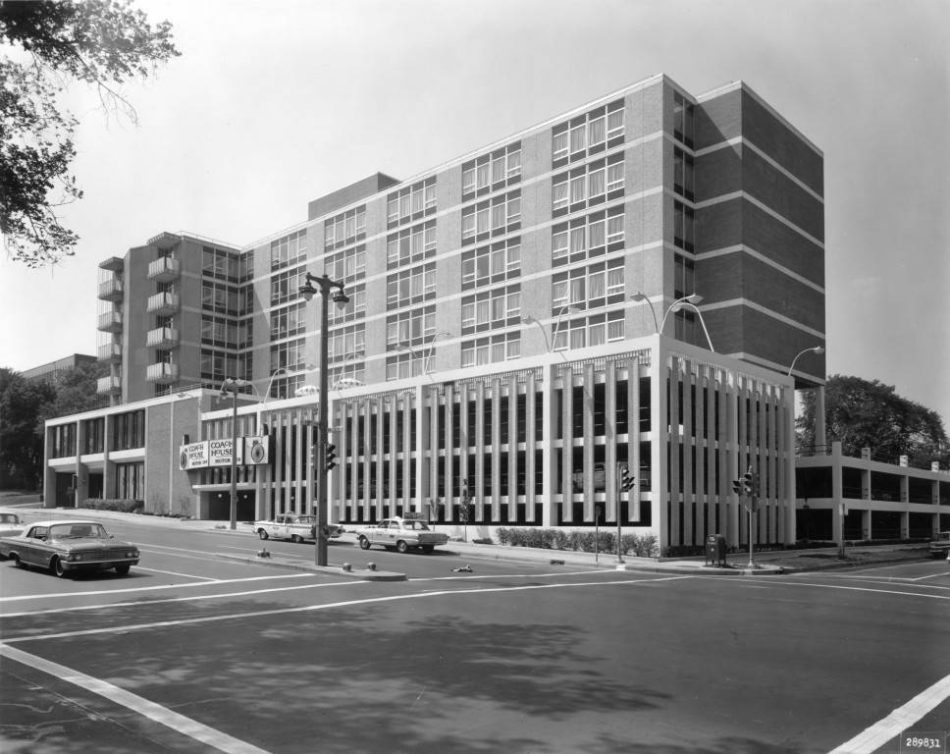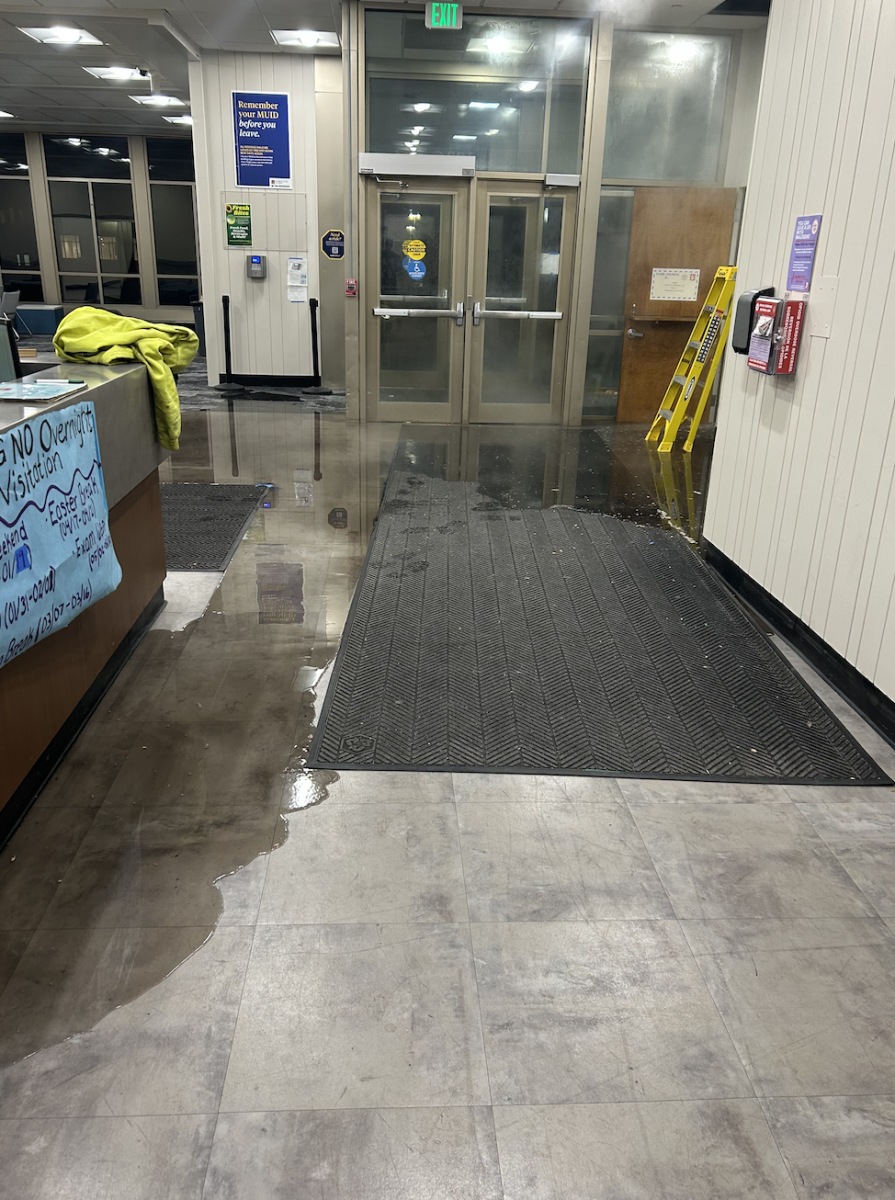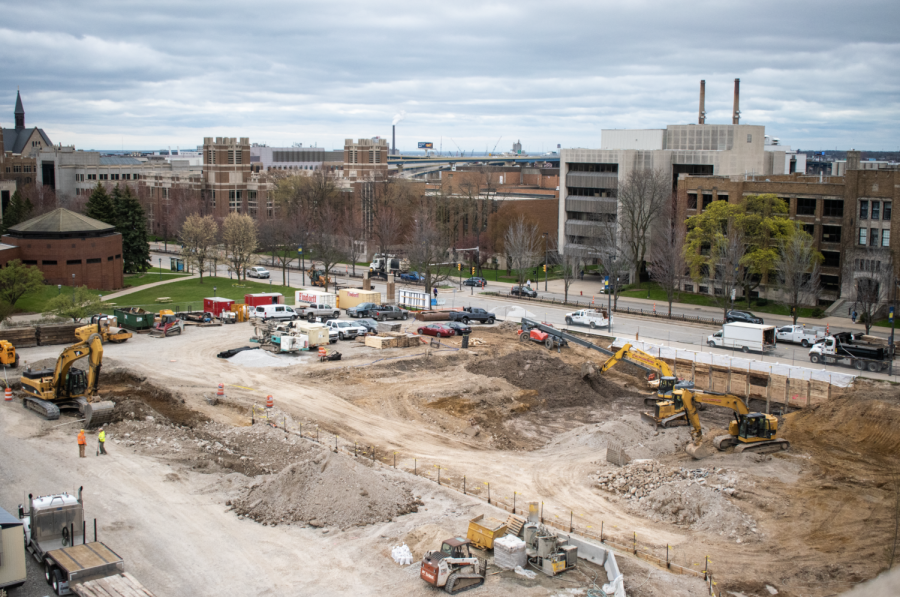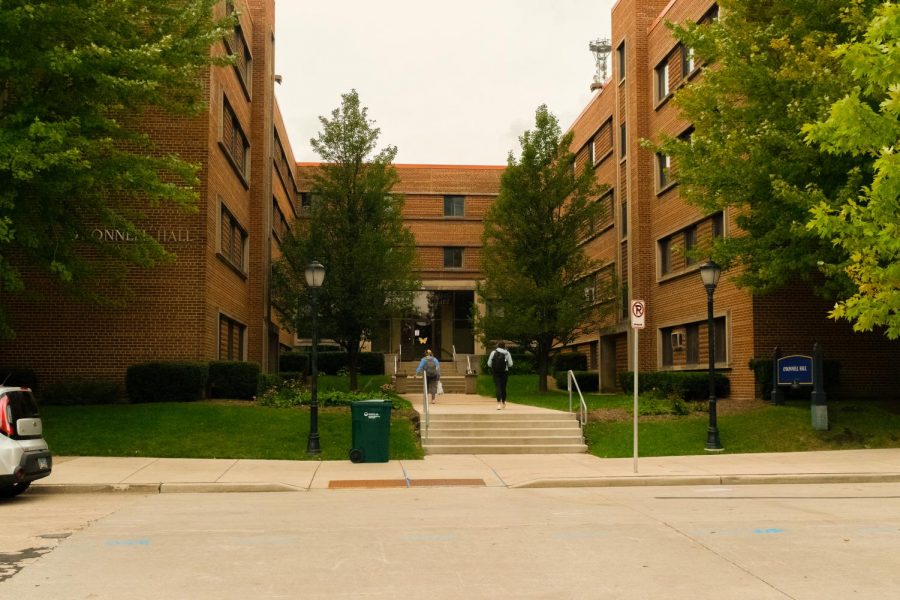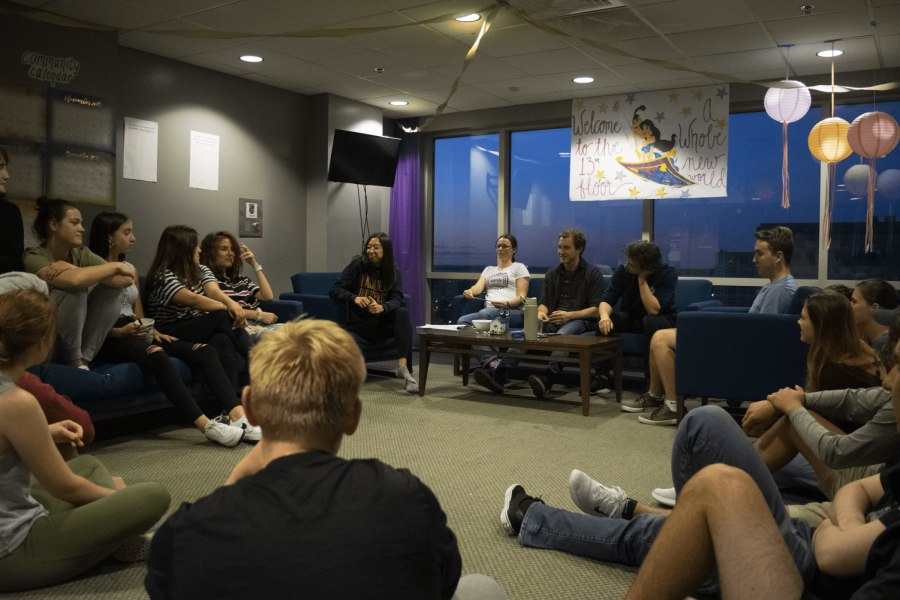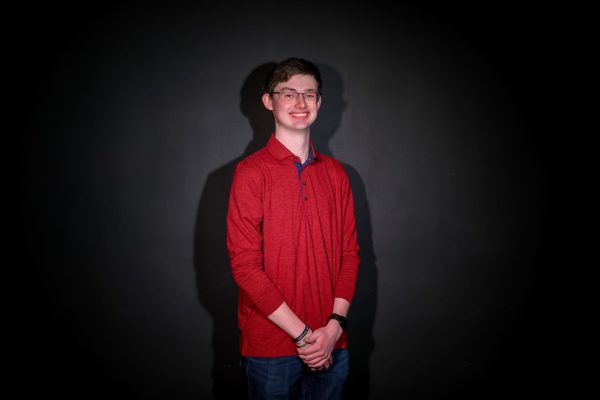Toward the western end of Marquette’s campus, Mashuda Hall serves first and second-year students as a dormitory building, holding an inventory of memories and stories through three names and over 60 years of operation. Since its inception, the building at 1926 W. Wisconsin Ave. has served as a temporary home to tourists, college students and even a world-famous rock band on its journey to the present.
The building opened as the Coach House Motor Inn in 1961, a hotel that included amenities such as a swimming pool, sun deck, and parking garage. The pool sat on the building’s second floor, overlooking Wisconsin Avenue while guests sat poolside beneath umbrellas.
For students walking westward towards Mashuda Hall along Wisconsin Avenue, the set of windows on the east facade of the building’s inlet gives a glimpse into its past life, as the same cutout was previously used to look over the rooftop pool.
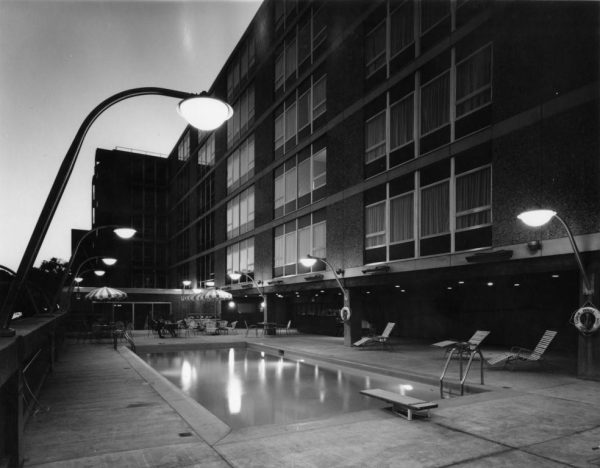
Flanking the opposite side of Mashuda’s east wing was the parking garage, which occupied the space that has been used as a ground lot for the building since its demolition.
The Coach House Motor Inn played its way into Milwaukee lore in the mid-1960s, serving as a stop along The Beatles’ 1964 World Tour. Following their performance at what was then Milwaukee Arena (now UWM-Panther Arena) on September 8, George Harrison, John Lennon, Paul McCartney and Ringo Starr spent the night at the hotel. While the specific room that they stayed in is unknown, it is believed to have been in the Governor’s Suite on the seventh floor.
When word of their lodging plans reached Milwaukee, room reservations for the Coach House began to pour in from fans that hoped to catch a glimpse of the Fab Four up close. The chaos caused then-secretary Nathan Rakita to shut down local reservations, only booking rooms for out-of-town patrons.
Since 1964, the Governor’s suite has been lost to time, split into rooms standardized to the rest of the building. Though the exact room remains unknown, a new set of residents each year continues to lay their heads in the same space as The Beatles.

Following a brief switch from the Coach House Motor Inn to Holiday Inn Central, Marquette purchased the building in 1980 for use as a dorm hall, remodeling it in 2002.
The new addition to campus was renamed Mashuda Hall following the purchase, named after Josephine Hallman Mashuda. Mashuda was a friend of former Marquette President Rev. John Raynor, S.J., who convinced her to become a beneficiary of the university by funding the building’s remodeling in honor of her late husband, Frank Mashuda.
During its time as a dormitory building, Mashuda was outfitted with a dining hall for nearly 39 years, which closed in 2017 with the opening of then-Wild Commons. After decades of serving students, the trend line of dining hall patronage dipped prior to 2010, resulting in an overhaul to the facility.
Following a $500,000 renovation in 2010, Mashuda’s dining hall switched gears, moving from a cafe to a 50s-style diner, equipped with a jukebox while students ate made-to-order burgers, cheesesteaks, omelets and milkshakes. The reimagined dining hall brought in 781 people on its second day of operation, surpassing the average number of patrons each week before the revitalization.
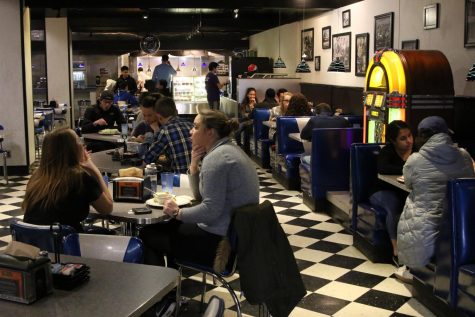
Today, the eating spot that used to feed students serves Mashuda residents as a multipurpose room. Following a $150,000 investment after the dining hall’s closure, the space just off of the building’s entrance allows students to study and socialize while also serving as host to hall events.
Though not the same as a vintage diner, the multipurpose area still has a sliver of food service, as Mashuda Hall was one of two dorm buildings outfitted with a smart vending machine in 2023, serving sandwiches, salads, snacks and drinks.
In the present, the walls that line Mashuda Hall continue to be a history book for tourists, students, and bands that have touched down in the building. With a constant turnover of residents through time–some stays lasting a school year and others just a night—1926 W. Wisconsin Ave. continues to collect stories as time marches on.
This story was written by Lance Schulteis. He can be reached at lance.schulteis@marquette.edu


